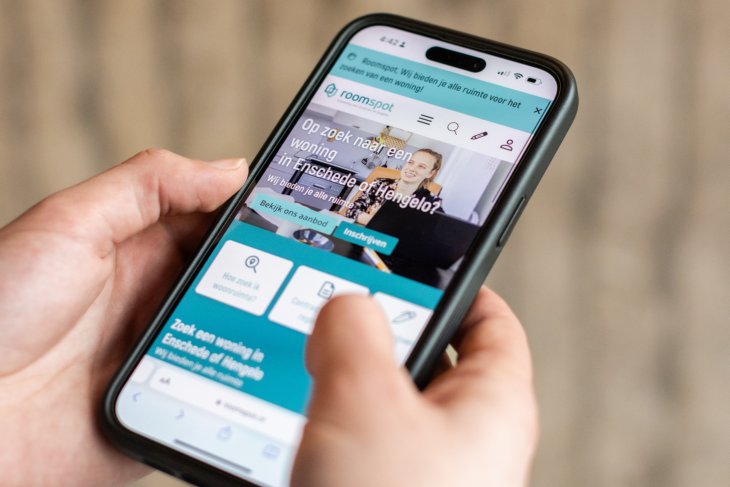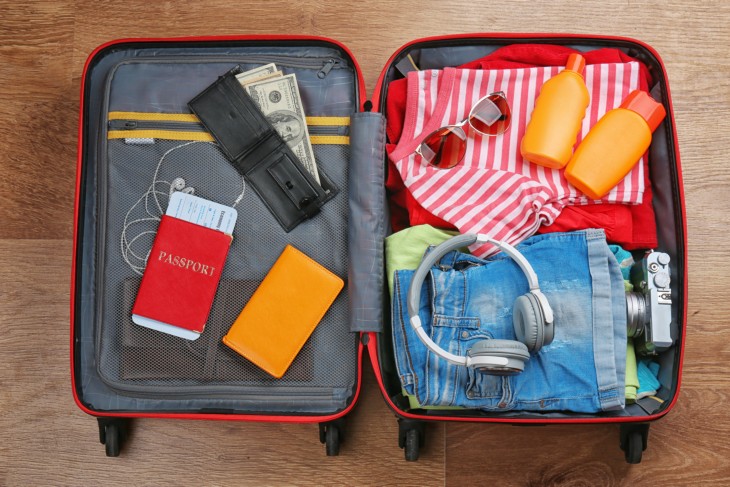Before we get into it, let’s put some things in perspective. Yes, finding student housing in the Netherlands can be challenging, especially if you’re new to the country and the system. But don’t be discouraged by stories you read online. Every year, thousands of (international) students manage to find a good place to live. With an early start (we can’t stress this enough), some patience, common sense, and the right tips, you’ll get there too! And good to know: if you’re a non-EEA student and you require a visa to study in the Netherlands, then you will receive a guaranteed housing offer by the University of Twente for the first year. For more information, visit our website.
Now, without further ado, here are our 8 tips to help you survive the house hunt unscathed!
1. Use trusted platforms
While searching, you’ll likely come across housing ads on platforms like Facebook or the Dutch advertising website Marktplaats.nl. And although some listings may be legit, many scammers use these open platforms to post fake offers. It’s safer to use university-approved websites like Kamernet, Pararius, or Roomspot (specifically for students in Enschede and Hengelo). These platforms may charge a small subscription fee, but the chances of being scammed are much lower. Found something through social media anyway? Then be extra cautious and keep the rest of the tips that we share in this article in mind!
2. View the room, in person or via video call
Before signing anything: make sure that you’ve seen the room. As an international student, you might of course not be able to visit physically. But in that case, you can always ask for a video call to get a live tour. It helps you verify that the room actually exists and it gives you a better impression, too. A scammer would back down at this point, so it’s a good test.
3. Check if the rent is realistic
Who wouldn’t love to live in a luxurious studio in the city centre with a private bathroom and a balcony for only €300 a month? If the offer seems too good to be true: it probably is. On the other hand, you can also get overcharged. Check the rent via the website of the Dutch Rent Tribunal (Huurcommissie in Dutch). If it turns out to be too high, you can request a reduction, even after signing the contract!
4. Never transfer large amounts in advance without proper guarantees
Paying a small fee for a housing platform subscription like Kamernet.nl is fine. But if someone asks you to transfer hundreds of euros before seeing a contract or visiting the room, something’s off. Some scammers ask for payment to take part in some kind of lottery system for a room – if you need to pay for a “chance” to get the room at all, then it is almost always a scam. Others promise to send you the keys after you pay the deposit, before you sign any formal contract, or even without viewing the room. Remember: real landlords understand that you need security before paying anything.
5. Check the identity of the landlord or provider
A clear sign of a scam: the landlord says he is abroad and asks to transfer money to a foreign account. Don’t be fooled and make sure to always check the identity carefully. A trustworthy landlord does not beat around the bush: he or she neatly shares a full name, phone number and (partially shielded) ID. Is the room offered via an intermediary agency? Then check whether the agency is registered with the Dutch Chamber of Commerce. No registration? Then don’t continue.
6. You must be able to register at the address
Red flag alert: the landlord tells you that you can’t register at the address. This is a major issue. Without registration at the municipality, you can’t receive benefits like healthcare allowances or student finance – and you’re not officially living in the Netherlands. It may also signal illegal subletting or other shady practices. Always make sure you can register at the property.
7. Not sure? Ask for help
When in doubt, don’t hesitate to ask for help! Contact your future university if you are unsure. The Dutch Student Union (LSVb) or The Rent Tribunal (Huurcommissie in Dutch) can also provide advice about your rights.
8. Got scammed anyway? Always report it
If you fall victim to a scam, report it to the Dutch police via politie.nl/en. It may feel like a lost cause, but your report can help protect others – and sometimes there’s more that can be done than you think.



